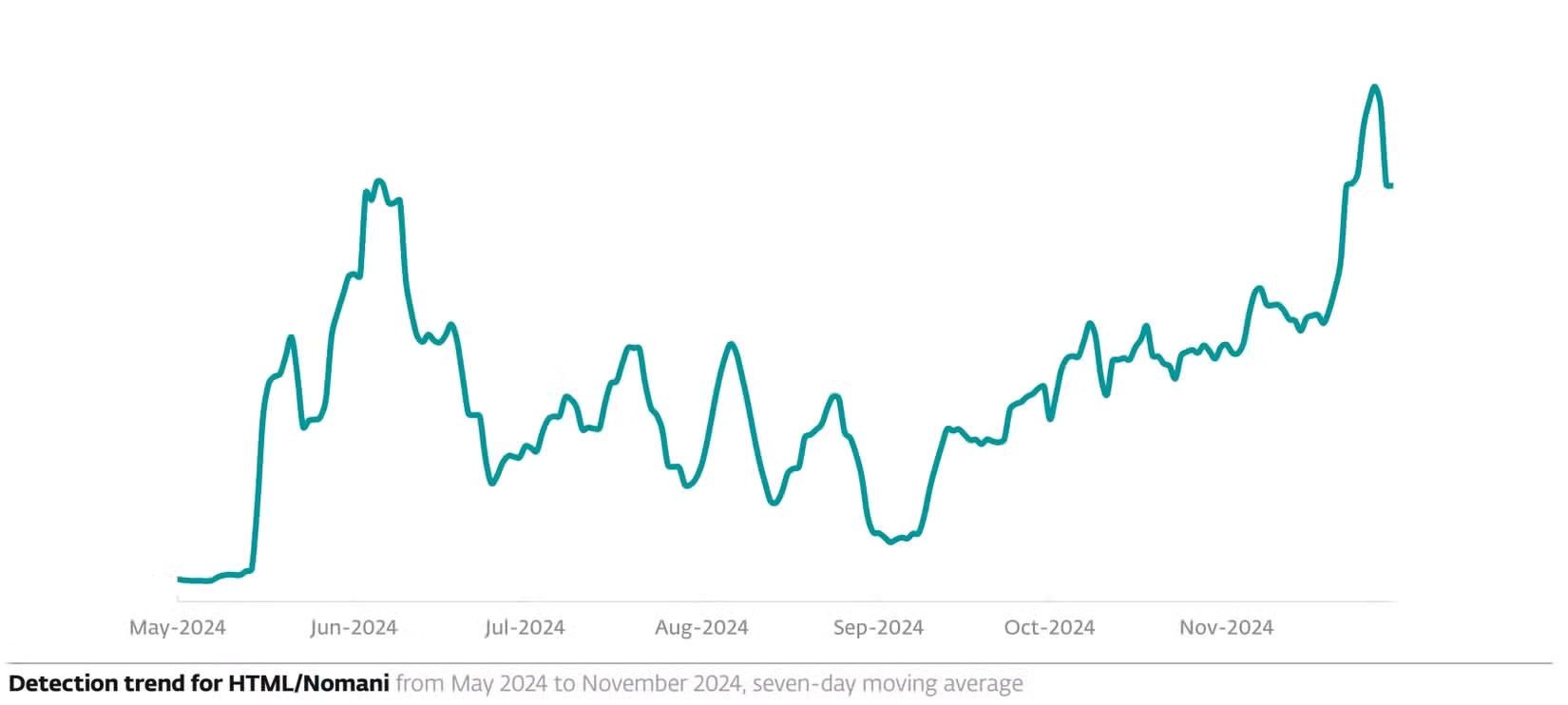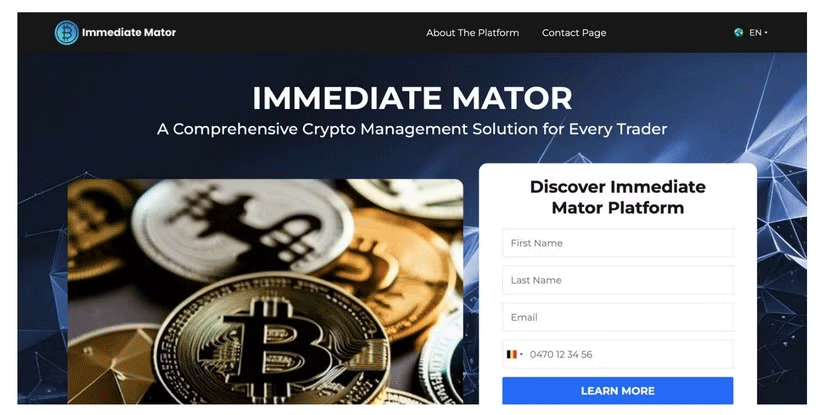Nomani Alert: AI Investment Scam Is Stealing Millions
A new AI-powered investment scam is spreading across social media platforms, stealing millions of dollars in the process. It's called Nomani, and here's how you can spot it.
How Nomani uses AI and social media to lure victims?
Nomani — a play on the word 'no money' — is an investment scam that uses AI deepfake videos, malicious social media ads, and branded company posts to lure victims into fake investment schemes that promise quick and massive returns. The spike began in May 2024 and grew 335% from the beginning of the year to the second half of the year, according to ESET. Between May and November 2024, 8,500 domains and tens of thousands of attempts to access Nomani were blocked, with 100 new URLs related to the scam detected every day.

Fraudsters use deepfake videos of celebrities and influencers to lure victims into investing with the 'rich and famous.' Celebrities are impersonated to lend legitimacy to the investment scheme. In some cases, highly localized fraudulent ads are used, impersonating heads of state and local political or business leaders.
In the United States and Canada, deepfake videos of Elon Musk promoting a 'unique cryptocurrency investment opportunity' have been used. In other cases, previous victims of fraud have been targeted by groups impersonating Interpol or Europol.

The group lured victims with promises of refunds or assistance in recovering stolen funds using fake social media ads. These fake ads were distributed on Facebook and Instagram, with some using Facebook Messenger and Instagram Threads. X (formerly Twitter) and YouTube were also used to post fake customer reviews and deepfake video testimonials to lure victims into using the 'investment platform.' These fraudulent positive reviews ranked highly in Google searches.
The fake ads are posted from a combination of stolen legitimate profiles, including hacked business or influencer pages, newly created profiles with few followers and posts, and pages that mimic legitimate companies or media outlets. Scammers use official logos, colors, and social media content previously taken from legitimate pages to create clones. The ads direct victims to fraudulent websites where their data is harvested.
Scammers use contact information from fraudulent websites to call victims directly and trick them into investing their money. Some are persuaded to take out loans, while others are forced to download remote access apps onto their devices. When victims ask for payment, they are asked to pay more or provide their personal identification or credit card information. After taking the victims' data and money, the scammers disappear. Nomani's scam is similar to the infamous pig butchering scams.
The Easy Way to Spot the Nomani AI Investment Scam
First, there are the low-resolution AI video ads and testimonials associated with this scam. The scammers use the low resolution to hide the AI video rendering errors, making it harder to see on small smartphone screens. You'll also notice strange sentence structure in the speech, unnatural breathing patterns of the person in the video, and poor audio-video synchronization. You'll also notice that keywords are repeated throughout the video.
Other telltale signs that you're watching a deepfake video include robotic-sounding dialogue, strange pronunciation of words, poor lip synchronization, jerky and unnatural body movements, and lack of eye movement.
Like other investment scams, the Nomani scam promises quick, easy, and huge returns. A dedicated call center convinces victims to borrow money to increase their investments or download remote access apps to withdraw payments. The call center features a fake investment manager who asks victims to invest more until there is no more money left.
Remember, promises of easy money are the biggest red flag. Like any financial scam, free food is only in the mousetrap.
You should read it
- ★ Modern Millionaires Course - A Scam or Valuable training for Entrepreneurs
- ★ Warning: Scams on Telegram, many people 'fall into traps' and lose hundreds of millions of dong
- ★ How to detect scam online
- ★ The winning scam from Google: 'Game cat' for vigilant people, 'tragic' for those who are light-hearted
- ★ Apache 2.0 with SSL / TLS protocol: Step by step instructions